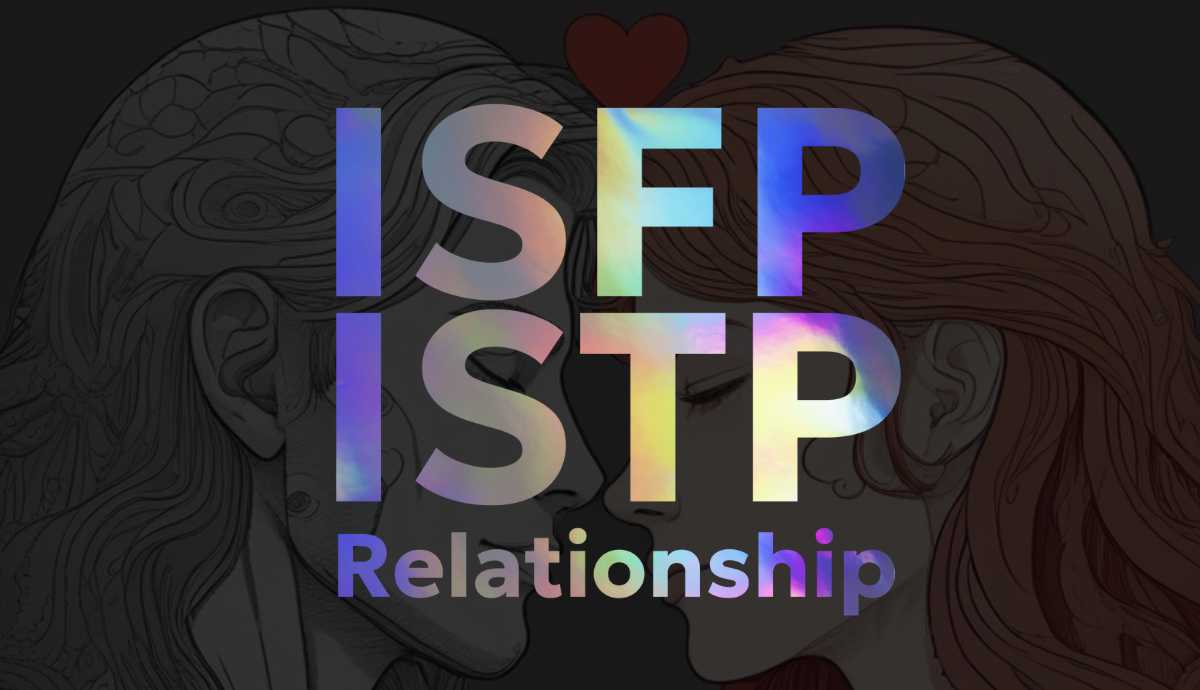It is normal to have a little in pride in what we are good at. Each Myers-Briggs type is likely to be a bit arrogant or self-assured about the areas in which they are proficient. Here is a look at what each MBTI personality may be smug about.
INFJ
A sense of moral superiority and a notion that they know what is best may be something for which the INFJ is guilty of. While they are indeed like a spiritual guru, well-equipped for moral arbitration taking into account important black-and-white facts and logic in tandem with compassion and empathy, INFJs may come to think too highly of their opinions and take for granted their standard of moral authority. They may sometimes display arrogance in the form of a messiah complex or through unsolicited homilies that may strike others as being sanctimonious regardless of how well-intentioned they may be. INFJs may sometimes feel their ability to read people is on par with professional psychics and crystal balls.
INFP
INFPs are pretty modest although their aloofness can be sometimes perceived as conceit. INFPs may feel that they are deeper than most people and may view the average person is being relatively shallow and pitiably unaware of the things on which they ponder regularly. This depth of emotion they possess likely informs and energizes their creativity and INFPs may pride themselves on the poignancy and nuance of how they think and feel and the work they produce as a result of this. Many INFPs may be drawn to the arts especially that of creative writing and may find their voice in poetry. To this end, INFPs can develop an air of snobbery surrounding their creative expression and may come to regard those who don’t understand or appreciate their work as being soulless boors.
ENFP
ENFPs often have a strong desire to be liked that compels them to seek popularity. The more popular and appreciated they feel, the more secure they feel. Sometimes, ENFPs may measure their self esteem in terms of how validated they are and when they are lavished with love and attention, it can go to their head and the attention can become addictive like a drug. Their egos feed on this and they are likely to pride themselves on the prestige and social cachet they are able to obtain through their charm and wit. ENFPs despite their friendly dispositions may develop a sense of entitlement on account of their power of personality.
ENFJ
ENFJs are self sacrificing and noble but they may at times get smug about how much they give and the magnitude of their contributions compared to that of others. They, much like the INFJ can cultivate a messiah complex where they feel the need to take upon themselves the role of moral arbiter and teacher of higher principles. ENFJs in their effort to live up to the high standards they’ve set for themselves and the pristine image they want to present, may develop a high opinion of their values. They may appear to ride around on a self-righteous high horse while in reality not quite living up to the principles they espouse.
INTP
INTPs are sticklers for logical consistency and will be quick to dispute anything that doesn’t add up within their finely calibrated framework of facts and logic. Because they spend such a vast amount of time thinking things through they will invariably begin to notice that many people seem to lack the level of critical thinking skills they’ve developed. By and large, many INTPs may develop some arrogance around this notion that may show up in the way they challenge and dismantle other people’s arguments and point out the flaws in their rationale.
INTJ
INTJs are very phlegmatic and place higher import on objective reasoning over appeals to emotion. They can be intellectually smug and generally shun people who too often react emotionally and fail to think or assess things rationally. INTJs may often see themselves as the voice of reason and as the only person capable of cutting through all the nonsense and addressing problems with effectiveness and efficiency. INTJs can even become imperious know-it-alls who may be abrasive and tactless in expressing their contempt and criticisms of irrational or “idiotic” opinions. Their intellectual arrogance may sometimes contribute to difficulty in admitting fault.
ENTP
ENTPs may display some hubris with regards to their sense of originality and intellect. They are a bit quirky but they take pride in the uniqueness and distinction of their character. While they are very social and engaging, they do not want to be seen as a lemming or just another follower of the herd. ENTPs push to break the mold and deviate from the norm and in doing so seek to be recognized as a creative bellwether and an ingenious solver of complex problems. Many hipsters are probably ENTPs with a love for sarcasm and irony both verbally and also visually as expressed through the choice of attire they wear.
ENTJ
ENTJs are visionaries who have the ability to take an idea from it’s infancy and grow it into a prosperous enterprise. ENTJs are likely to pride themselves on their competence and drive. They are able to acquire resources and engineer master plans for long term success. Others appreciate their confidence and trust their judgment and leadership. ENTJs may sometimes see themselves as kings and queens, and in the wake of the triumphs they experience may cultivate a bit of arrogance and attitude of entitlement. Because they are so self driven and self motivated, they are very well able to claim most of the credit for what they achieve.
ISFJ
ISFJs adhere to a certain way of doing things that in their opinion at least, is of a high standard that most people would not adhere to. ISFJs may be very judgmental and critical of people who do not respect or live up to their standards of conduct. Although ISFJs generally carry themselves with modesty, they pride themselves on their acts of service and help to other people. They may sometimes cultivate a sense of self-righteousness or moral superiority surrounding their capacity for charity or good behavior which may often be linked to religious values or values instilled in them from childhood.
ISTJ
ISTJs are very diligent and proficient and they may harbor smugness around their reliability and work ethic. ISTJs on account of their discipline and commitment to getting things done can acquire substantial success in life. They are often high performing students who complete their homework dutifully and still manage time for other activities and responsibilities. ISTJs as a result may be judgmental of those who do not exhibit a reasonable level of diligence. They may regard themselves as being exemplary and examples of what can be achieved from the structured lifestyle they follow. Inanition and laziness may be something for which ISTJs judge harshly.
ESTJ
ESTJs are bound to harbor some smugness about their status in society. Many ESTJs are able to rise through the ranks due to their natural leadership and learning ability. They will respect others who they feel have achieved a high degree of success in the world. Although ESTJs have very high standards for behavior, and believe that they know what is appropriate and best in any given situation, they’re likely to be less controlling with those who they feel are powerful individuals. With other people, they may adopt a more authoritarian tone especially towards subordinates.
ESFJ
ESFJs may display smugness with respect to their commitment to upholding traditions and maintaining relationships be it friends, family or lovers. ESFJs are enthusiastic and want the same level of loyalty and support that they put into their relationships. They have a desire to help and to be of service in some capacity. ESFJs know that they do a lot and they may feel shafted if they feel others do not make the same effort. ESFJs while quite tolerant and accepting of others may view themselves as being the standard for how to manage relationships. They may sometimes feel as though they are the only one who cares and must do most of the work in keeping relations with others running smooth and harmoniously.
ISTP
ISTPs can be smug about their ability to fix devices and figure out how things work. They are good at logical analysis, and like to use it on practical concerns. They typically have strong powers of reasoning, although they’re not interested in theories or concepts unless they can see a practical application. ISTPs may even create problems in their personal relationships, just so that they can have the fun of fixing them. They do not believe in or follow rules and regulations, as this would prohibit their ability to “do their own thing”. Their sense of adventure and desire for constant action makes ISTPs prone to becoming bored rather quickly.
ISFP
ISFPs having such a strong style may display smugness in regards to their sense of taste. ISFP have distinct preferences and a strong response to sensory details and in judging what is best aesthetically or otherwise. They may believe their sensibilities to be more sophisticated and qualitatively better than that of others. ISFPs often have an artistic bend and they like to add their creative flair to whatever they do and they put a lot of energy into the projects they are truly passionate about. ISFPs may be easy going and friendly but may exhibit hipster-like hubris and fancy themselves as being in a class of their own stylistically.
ESFP
ESFPs love attention and they may be slightly smug with regards to how interesting a person they believe themselves to be. ESFPs thrive on admiration and praise for either their appearance, personality, their work or anything directly linked to them. When they don’t get it, they can display immature and petty behavior. ESFPs at their best are very charming, charismatic and endlessly entertaining. They pride themselves on their popularity and whatever material symbols of status they can acquire.
ESTP
Being the great improvisers they are, ESTPs are likely to be very confident in their ability to rise to the occasion and “seize the bull by horns” so to speak. In the process of acting in the moment, they may overlook the consequences of their decisions but may post-facto rationalize their choices as being justified by their ends. ESTPs fancy themselves as the person in whose hands you can entrust to resolve a crisis or sticky situation. They pride themselves on their chutzpah and thrive on the urgency and pressure of an exigent ordeal because they like to get things moving quickly so they can experience the satisfaction of scoring another triumphant victory.
[ads_color_box color_background=”#5e011b” color_text=”#fac5f8″]Please share this post and subscribe for future updates 🙂[/ads_color_box]
related posts:
- What Each Myers-Briggs Type Was Made To Do
- What Each Myers-Briggs Type Does When No One’s Looking
- What Each MBTI Personality Hates
- 6 Reasons Why INFJ and ENTP Belong Together
- 6 Reasons Why ENFP and INFJ Fall In Love
- How INFJs Show Love : 7 Signs An INFJ Likes You
https://marissabaker.wordpress.com/2017/09/11/dating-your-mirror-enfp-and-infj-relationships/
https://litebeing.com/2017/12/09/infj-at-the-holidays-4/
https://rachelsimmondsfitness.com/2017/11/27/the-infj-personality/
https://victoriajaynesbooks.wordpress.com/2017/10/13/im-an-infj-what-does-that-mean/
https://tiffanylee.blog/2017/11/16/infj-woes/
https://soulofagypsywoman.wordpress.com/2017/10/15/unraveling-an-introvert-the-infj/
Want to know your astrology placements? You can generate your astrology chart here with our free birth chart generator tool.
- The 8 Cognitive Functions Explained - May 17, 2025
- American Presidents Ranked By Zodiac Sign - January 20, 2025
- ESTP and ESFP in love: 6 Dynamics of Their Relationship - September 4, 2024





